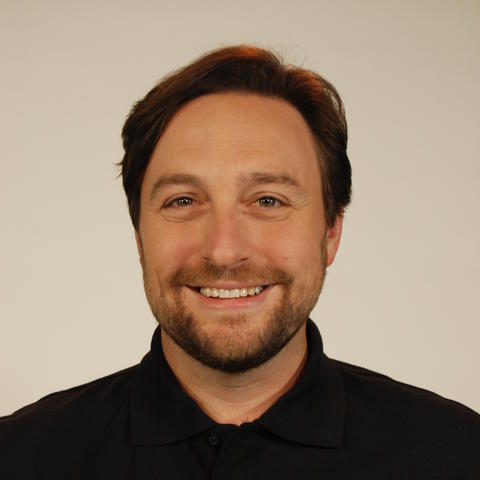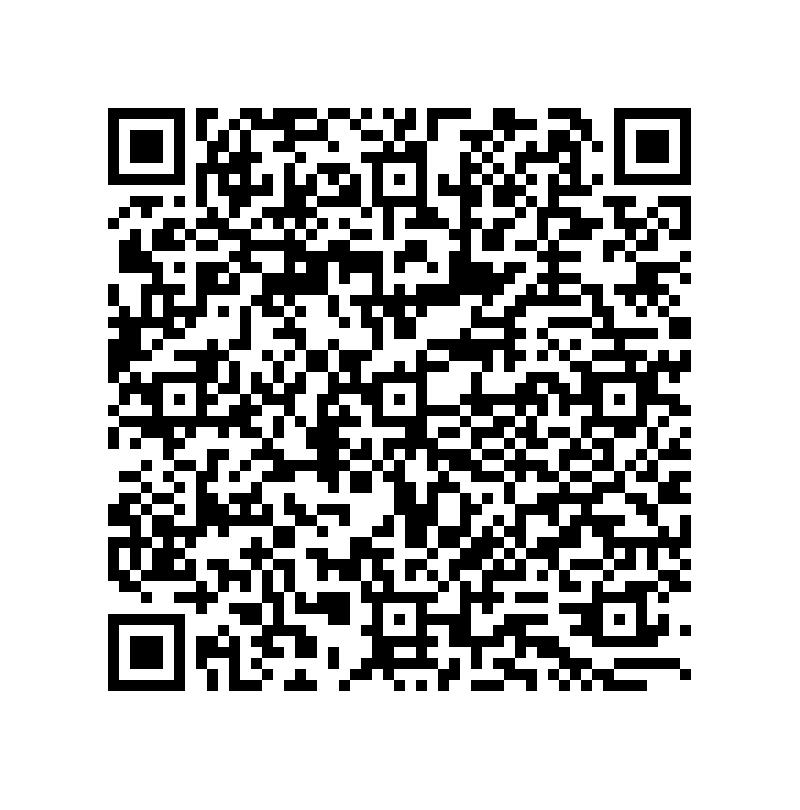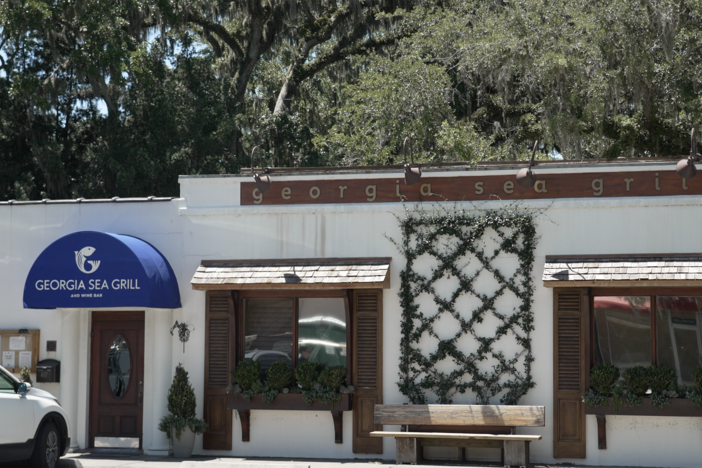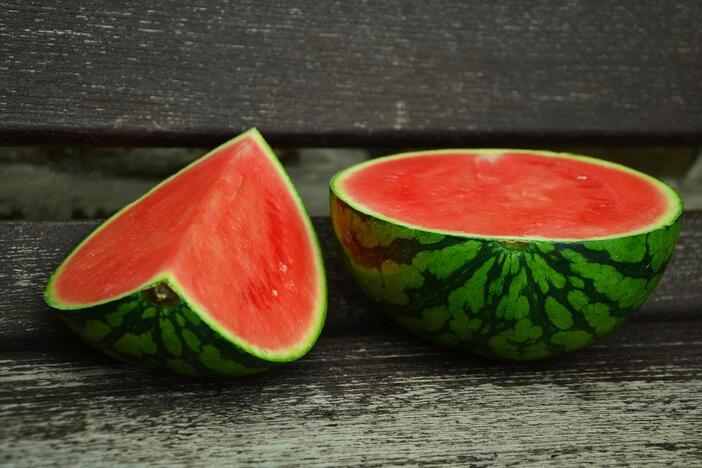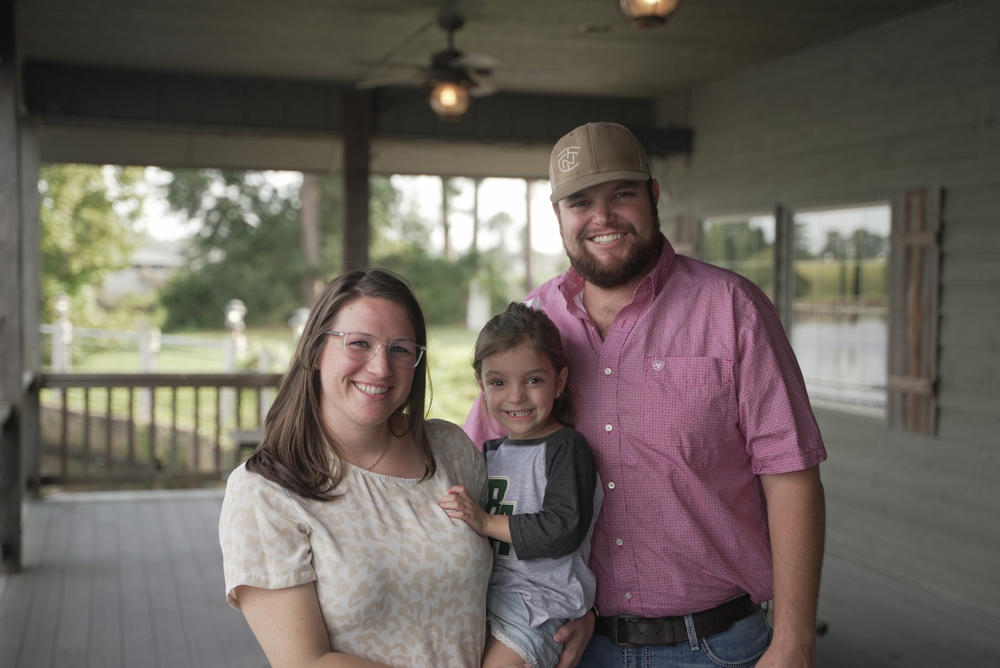
Section Branding
Header Content
A Fork in the Road Podcast: 920 Cattle & Company
Primary Content
The owners of 920 Cattle & Company in Millen, GA are the next generation of family farmers. Becca and Jarrod Creasy take a holistic approach to their meat and cattle farm. These young farmers are deeply involved in animal husbandry, land preservation, and the nutritional needs of both their livestock and their consumers. This is the future of family farming.

Jarrod Creasy: When you take the time to understand livestock, when you take the time to understand how animals move, how they eat, how they function, it goes a long ways. And you can tell that from the quality of meat.
David Zelski: At family farms, it often takes the whole family to make it all work. And that family collaboration can produce magical and rewarding results. In Metter, Georgia, we got to visit a first generation family farm that was built from scratch.
Theme Song: There's dirt on my hands, strong like a tree. There's roots where I stand.
David Zelski: I'm David Zelski, and this is the Fork in the Road podcast presented by Georgia Grown and the fine folks at Georgia Public Broadcasting. Each episode, we feature stories from Georgia's farmers, fishermen, merchants, artisans, chefs and others who help provide Georgia Grown products to folks in the Peach State and beyond. Today we're headed to Metter, Georgia. Metter is off I-16, a little more than halfway between Macon and Savannah, not too far from Statesboro. On this episode, you'll get to meet the Creasys. They're the family that runs 920 Cattle and Company, a first generation family farm founded in 2014. The owners are Jarrod and Becca Creasy. Two folks who grew up in the agriculture community and have deep roots in the livestock industry.
Jarrod Creasy: We are considered first generation farmers. We did this on our own. We did this without any capital and capital investments. We did this without inheriting anything. This was something that we jumped out. We stuck our neck out on and did it ourselves.
David Zelski: The Creasy's home is the family farm where they raise beef, pork, lamb, and eggs. Every member of the family does their part. From the dogs that guard their fields to the hogs that handle some of the landscaping and even their young daughter, Finley. 920 Cattle and Company is a family effort. As Jarrod explains, the name of their company has a heartfelt origin.
Jarrod Creasy: So 920 was started from the marriage back in a September 20th is when we got married. And that's where 920 came from. All of this started back in 2014. We started in the cattle business, purebred cattle business, where we were selling embryos, purebred bulls, females, pretty much anything along those lines. Brangus and Angus cattle is kind of the focus that we were on. Very quickly realized that the way we were culling animals as far as the not meeting the genetics that we were wanting. We needed another outlet for it. So we started selling some freezer beef here and there. Half and whole beef to consumers at home consumers. And we saw an opportunity there. And from there, that opportunity kind of grew into the meat business.
David Zelski: When you picture a family farm, the image comes to mind of a grizzled group of sun-worn folks with calloused hands and skin forged from a long bloodline of hard working individuals. But 920 Cattle and Company is a first generation farm. In that sense, Jarrod and Becca might not look like your typical farmers. They're of the younger persuasion. And as Becca explains, they represent sort of a fresh take on the agriculture industry.
Becca Creasy: Our generation is the bulk of the purchasing power within our economy, and I think we are are shifting maybe at least in our little space of this world, shifting how we engage with consumers because we are consumers ourselves. And I think recognizing the process that we go through to make decisions about brands that we engage with or companies that we want to want to invest in or spend money in. I mean, we would be remiss if we didn't consider that from our own perspective. And so as small business owners ourselves, like we want to show up in ways that that develops trust and develops relationships with our consumers over time and do it in a thoughtful and intentional way.
David Zelski: Running a family farm is no easy task, but as long as you persevere, amazing things can happen. And at 920 Cattle and Company, they know that well.
Jarrod Creasy: We've been told no a lot in our young lives. Since 2014, we've been told that we couldn't do what we've done. And we've learned a lot by being able to be told no. But at the same time, we were still able to make it happen. We still hustled hard and made the struggle and made it work. And, you know, we're not not by any means living high on the hog. You know, we live off the land. We live off what God allows us to live off of.
David Zelski: 30 miles north in Millen, Georgia, is where you'll find 920 Cattle's butcher shop and an abattoir facility. That's a slaughterhouse. There families can get a variety of delicious and flavorful meats that are hand butchered on site. Becca and Jarrod came from the breeding side of the cattle business, so it took some convincing from the owner for them to decide buying a butcher shop was the right move.
Jarrod Creasy: We were able to acquire a 75 year old butcher facility. Of course its had its updates and upgrades, and we first had the conversation about it, The Fries Family, Mr. Bobby. He approached us about purchasing the facility. It was one of those things too, where went in there one day and he jokingly said, Y'all should buy this place. And Becca and I both laughed. And that was that. We laughed at it and walked out the door. And long story short, he called us back and he said, I got some papers I want you all to see. You know, you'll come up here, pick this steer up. I want you all to come up here and kind of sit down with me. He lays this big ole stack of papers on the desk and he says, Well, here you go. This is how much money I made last year, how much money I made the year before. This is all the business that I do. This is what you can do. Here you go. So we took it home. We looked at it, we looked it over, thought about it, prayed about it. And I guess that was in the spring of 2016. Spring of 2016 is when that was. And December ish 2016, we pulled the trigger on it.
David Zelski: And buying the butcher shop created a domino effect that ramped up the Creasy family business tenfold.
Jarrod Creasy: With the butcher shop, things kind of progressed. We very quickly branched out into some other species. Once we kind of realized what was going on there, we started raising hogs. We've got a lot of partner producers that help us manage all of this different opportunities and different things that we do now, livestock wise and ventured into hogs and in and really started growing size wise started growing livestock wise. We were able to find a a pretty neat outlet for sausages, for anything value added. We were able to start moving a lot more product, which in that turn allowed us to really pick up some more acreage, allowed us to pick up more head count and really push forward with what we were wanting to do dream wise.
David Zelski: And inside. I got to see some meat get processed and packaged close up.
Butcher: We're in the salt cooler. Now this is where everything gets cured. And like down right here, we have some pork bellies, some fat. Each customer gets a number and we'll write their their their number on the skin of whatever they're getting cured so we don't lose anything of them right here to this customer has a some ham, some bellies and some hocks right over here. And that's our company, pork jowl that Mr. Willie is about to start cutting along with some pork bellies.
Jarrod Creasy: So at the butcher shop, 70% of the business that we do is for the public that's processing everything from beef, pork, and lamb for the public, whether we're private labeling it, whether we are putting a USDA label on it for those guys to go and resell it, whatever we're doing to help that farmer, to help that producer have a more marketable product that is 70% of our business, and then 30% of the butcher business is 920. So where we take our company animals in there, beef, pork, and lamb currently and really take that to the consumer. So take that from the farm all the way through our butcher facility to the consumer where we offer an unlimited amount of products which can be found at farmers markets, pop up markets, our mobile meat market that we have, you can also purchase it online. We can ship nationwide. So we're able to provide that protein to be able to go through the whole way.
David Zelski: Purchasing the butcher shop and slaughterhouse turned out to be a great move for Becca and Jarrod. It's now the backbone of their business, no pun intended. However, the Creasys have made a real effort to diversify that business to cover more than just the raising and processing of meat. Becca explains.
Becca Creasy: Diversity has been key for us. So I think when we think in terms of longevity and sustainability of our business, diversity is critical for us to implement. I know Jarrod mentioned it, so for a while we were in the hay business. We also owned a fencing company for a while, which allowed for some stability as things fluctuated in any entity. And so when we think about the meat business and the livestock production side of our business, it's a lot to manage. But the diversity is really what sustains us because I think when you look at it from the lens of providing sustainability and consistency and the ability to market and promote a product to a consumer who is used to a certain standard and used to a certain quality and consistency, that that's the only way we could make that happen really was to diversify and broaden our our scope here.
David Zelski: On this ranch. Everyone's a member of the family. That's what makes it so great. The Creasys want to provide a positive working environment for all of their employees.
Becca Creasy: Both of us have worked in other entities and in other businesses, both in the private sector and for small businesses and then in the corporate sector as well. So I think, you know, we learned very early what it what it feels like to work for somebody. And we understood very personally and very intimately what we expected for ourselves as employers, but also what we wanted our employees to feel. And so we treat all of our employees as if they are family. We are very intentional about our hiring practices. So just making sure the, you know, at our core, we align with the people we hire and the people that are part of this team. And we I mean, we wouldn't be where we were, where we are without the people that we have brought along and and those that have helped us become what 920 is today.
David Zelski: At 920 Cattle and Company. It's not just the humans that get treated well. Jarrod tells me the care they take with their livestock is really what sets their meat apart.
Jarrod Creasy: So I think one of the biggest things when it comes to meat is animal husbandry goes a long ways. Animal husbandry really dictates how that animal is handled from the time it is born. All the way until the time and conceived. Yes, absolutely. So even before it was born, from the time we do the breeding all the way to the end, all the way to the final process, all the way until it hits the abattoir gate and really the back door of the abattoir. And then not even it doesn't even end there. I mean, it goes all the way to the packaging process. When you take the time to understand livestock, when you take the time to understand how animals move, how they eat, how they function when it's 110 degrees outside, how they, you know, prefer to operate. It goes a long ways and you can tell that from the quality of meat. You can tell that from the tenderness of it, the fat content in it. You know we are grass fed, grain finished operation with everything that we do. So everything is finished on grain. Everything goes through that final process of of a free choice buffet. That buffet of whatever they want is their option. And you know, happy animals provide happy meat and it provides good consistency in that meat. And so the quality that it provides to the consumer is what we want to feed our family is what we want to feed our employees, what we want to feed our community. And that's what, you know, is really important to us.
David Zelski: Happy animals make happy meat, now there's a slogan. The Creasys tell me that besides providing customers with the high quality meat, consumer education is also a hugely important aspect of 920 Cattle and Company.
Becca Creasy: Yeah. So when we think about educating consumers, we're really focusing on there's, there's three focus areas. So the production aspect. So really understanding the consumer's hesitations and concerns around is there meat safe, is the food that they're feeding their family healthy and wholesome for themselves? And so really understanding at a deeper level when they ask about is it grass fed, is antibiotic free, is it this is it that like really understanding what their concerns are and addressing them in a in a very transparent way. And so that's the first part. And then the second part is the processing and handling piece. So educating consumers on how things are processed, what how to prepare certain cuts of meat, what value added products are, how convenience lays into or overlays into the production side of what we do from a brand and from a product standpoint. But then also on the other end of the spectrum. And so what what is the meat product that actually is taken home and how can we educate consumers about the healthiness and the quality and the wholesomeness of that product, but then how to prepare it for their families kind of to what Jarrod was mentioning, like how do we educate them around healthy, healthy eating habits and changing nutrition and health at home so that, you know, then turns into healthier families and healthier communities.
Jarrod Creasy: If we can educate them on how to do that and how to, you know, take the toughest piece of meat on beef and make it to where it is really the probably the most delicious piece they put in their mouth. Like that is the big, big win that is huge for us. And it allows us to move that whole animal. It becomes that zero waste opportunity to where we're not putting anything aside, we're not taking anything and throwing anything away. You know, if if we've been good enough to be able to to shepherd these animals, to be able to run these animals and take care of them all the way through, it's only right to be able to, you know, utilize the whole thing, utilize that whole animal that was put here for us.
David Zelski: On a temperate summer afternoon, we took a stroll through the open fields at a ranch owned by Mac McGee, a friend of the Creasys, who frequently does business with the family.
Jarrod Creasy: So we're in Wheeler County, which is around the Alamo area. We're about 65 miles from what we call our home farm or headquarters farm where our sheep and some hogs are located at. We're at Mac McGee's place. This is his place. We've got cattle over here. Purebred cattle is kind of what you can see behind us.
David Zelski: These cows are eating good.
Jarrod Creasy: These cattle are spoiled. They from the nutrition side, they pretty well get whatever they want. They get all the grass they can eat. You can see some protein tubs that they get this time of the year when forage is starting to deplenish a little bit. Change in seasons. And then also free choice minerals.
David Zelski: To bring us the foods we eat and enjoy every day. It takes a network of families which make up whole communities. Jarrod tells me how Mac McGee and his family have helped the Creasys over the years.
Jarrod Creasy: Mac has been a blessing to our family. We met Mac, I don't know, probably eight years ago now, and he's been gracious enough to to kind of work along with us. And and we trade a lot of stuff out. And just one of those relationships that bring it back to the word of family. You know Mac's part of the family and and we're thankful to have him.
David Zelski: There's a whole lot of animals roaming freely on this property, and it's a beautiful sight. So let's visit some more. Further down in the pasture, Jarrod points out some chickens.
Jarrod Creasy: So the neat thing about when chickens are out in pasture where cattle are, you can physically see what they actually do from a fertilizer standpoint, not just the chicken itself, but they'll actually go out and they'll scatter that manure pile. So instead of a six inch by six inch impact, you have almost a two foot by two foot impact area from that manure from that beef animal. Just from where that chicken has scattered it out.
David Zelski: Even the chickens are doing their part for the ranch. Like I said, y'all, it's a family effort. And the chickens even create fun games for Finley. She's the littlest Creasy.
Becca Creasy: The pastured chickens will often lay eggs by these corner posts, and they've already been picked up for the day. So this is just what has been laid in the last probably an hour or so, two hours.
David Zelski: So it's like Easter every day for you and you go around.
Becca Creasy: Yes, Yeah. It's the highlight of Finley's afternoons is picking up eggs after school.
David Zelski: Getting to grow up around these animals makes Finley one lucky kid, and she even gets one group of animals to manage all on her own.
Becca Creasy: We got the lambs. We knew that it was a good business investment, but we really got the lambs for Finley. So all of the registered lambs that we have here are registered in Finley's name. And this is the idea of teaching her sound business principles early on and letting her kind of help or be a part of all of those decisions when it comes to breeding. And she's four, so she, quote unquote, helps manage the lamb flock. But it's really like the lambs is the place for her to really kind of, you know, stretch your muscles in that space and let her make some decisions and let her be a part of that planning process very intimately.
David Zelski: Raising all these animals in the same pasture requires a special method for making sure everyone gets fed. So you do the rotational grazing. How much of a challenge is that to get these chickens where these pigs are?
Becca Creasy: Yeah. So we go our goal is to lambs will lead the way, cows will follow, then hogs will come last and then chickens. Chickens are pretty flexible and where they can go. So we typically don't let them stay with the hogs, though they can stay with cows and lambs. So we typically just rotate them within a pasture until they have been exposed to the whole pasture because they kind of they go wherever, but they are concentrated in certain areas and then we will load them up into crates and relocate them, pull their pull their mobile coops, their tractors, as we call them, retired peanut wagons in this case. And then we'll relocate them and then we'll let the chickens back out.
David Zelski: And not everyone in the pasture is there just to eat. Some animals just want to sow chaos in the fields.
Becca Creasy: The hogs, they root. They're a little rougher on the land. So we are the pastures that they go into are a little more limited. And then for following following their rotation, we oftentimes will have to come through and just like fill in holes, make sure that the the land is is then replenished. Chickens are a great natural fertilizer. So we'll let them oftentimes come behind the the pigs. Let the land rest and fill in holes and make sure that it gets time to recoup. And then we'll be ready for the next rotation for lambs to come in.
David Zelski: Sounds like these pigs are no strangers to a good time. Let's get an up close look. They're smart, right?
Jarrod Creasy: Oh, yeah. Oh, yeah. If they wanted to, they could push that fence right down and come visit us if they want to.
David Zelski: Y'all remember that book, Animal Farm? Uh....nevermind. One of the cornerstones of 920 Cattle and Company's business is diversity. And not just the species of animals they process, but also the breeds.
Jarrod Creasy: So what's really neat with the diversity that we are within every breed are every species, especially with beef and lamb, is that we have a purebred herd of animals and then we have a commercial herd of animals. And with the sheep, you know, we do sell purebred Katahdin lambs, mostly females. We haven't really gotten to the breeding stock from a ram yet, but we diversify ourself within each species, not just from the standpoint of diversified farm with with all of these species, but we diversify all the way down into it. And that kind of gives us so separate and different outlets to be able to move that product, whether it be live animal or whether it be meat as well. It gives us that opportunity to capitalize the best that we can.
David Zelski: The Creasy family is one smart, savvy group of hardworking individuals. Their dedication to a diverse business means they have fingers outstretched into every aspect of farming, and you can already see the fruits of their labor and imagine their hard work echoing through the generations as time rolls on and establishes the legacy of 920 Cattle and Company. But it all has to start somewhere. Becca and Jarrod are the ones that made it happen.
Jarrod Creasy: One of the biggest things is that we've learned in the past seven years of businesses. You know, we're human. We're not perfect. We make mistakes. And we grow from it and we learn from it. And we try to, you know, not just better our business or ourselves, but our people and the people that we have those relationships with.
David Zelski: For more stories like this one, you can watch A Fork in the Road on GPB-TV or any time on the GPB.org website. GPB.org/Podcasts is where you can listen to and subscribe to this p odcast or download it on your favorite podcast platform.
I'm David Zelski. Thanks for listening to A Fork in the Road.
The A Fork in the Road TV show airs Saturdays at noon and Sundays at 6:30 a.m. on GPB-TV. Check your local listings for other replays throughout the week and watch all episodes anytime at GPB.org/ForkintheRoad. Please download and subscribe to the Fork in the Road podcast at GPB.org/ForkintheRoadpodcast or on your favorite podcast platform as well.
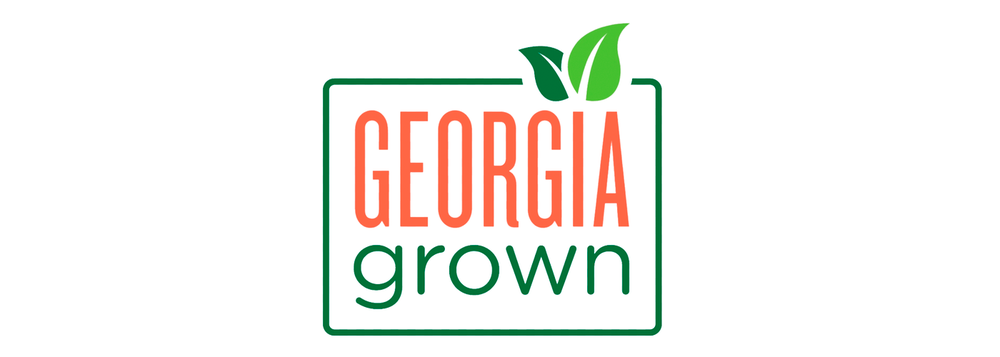
The owners of 920 Cattle & Company in Millen, GA are the next generation of family farmers. Becca and Jarrod Creasy take a holistic approach to their meat and cattle farm. These young farmers are deeply involved in animal husbandry, land preservation, and the nutritional needs of both their livestock and their consumers. This is the future of family farming.

